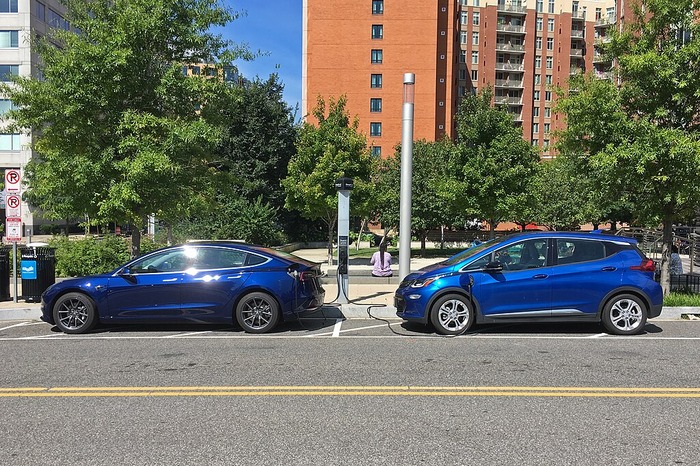India will impose no import duties on several goods used to manufacture electric vehicle batteries and mobile phones amid broader tariff cuts to help local producers withstand the potential impact of reciprocal US tariffs, Reuters reported, quoting finance minister Nirmala Sitharaman, who said: “We aim to boost domestic production and enhance export competitiveness by reducing duties on raw materials.”
India will exempt from import duty 35 items used to make EV batteries and 28 items used in mobile phone manufacturing, she said. India has been preparing to mitigate the impact of US President Donald Trump’s reciprocal tariffs set to take effect from April 2.
Reuters reported that India was open to cutting tariffs on more than half of the US imports worth $23 billion in the first phase of a trade deal that the two nations are negotiating, citing two government sources. Last week, an Indian parliamentary committee recommended that the government cut tariffs on the import of raw materials to support local manufacturers.
India orders Samsung to pay $601 million in tax for telecom imports
According to a government order, India has slapped Samsung with a tax demand of $601 million. The accusation leveled at the electronics giant is that it avoided paying tariffs on the import of key telecoms equipment, according to a report by Reuters. This will eat away majorly at the net profit of $955 million that Samsung made in India last year. However, this isn’t the first time Samsung has faced such accusations. In 2023, it received a warning from the India government for misclassifying a transmission component used in mobile towers that it imported to evade taxation.
‘Musk’s Starlink satellite internet costs 53% more over 30 years, maintenance twice as expensive’
US president Donald Trump is making changes to a $42 billion broadband subsidy programme that will benefit satellite internet providers like Elon Musk’s Starlink over optical fibre, but some state and federal officials worry the technology isn’t robust enough to connect Americans on a mass scale and at affordable rates, reported Bloomberg & ET.
The report said fiber, which involves stringing cable to a user’s home, costs at least $1,500 per location to install. By contrast, Starlink, which is part of Musk’s Space Exploration Technologies Inc., offers a standard residential kit for around $600, though those costs, too, can fluctuate.
The outlet said Starlink’s satellites need replacing every five years, making their total cost to consumers much higher in the long run, according to the state analysis. Fiber’s overall cost to serve a quarter-million homes is roughly $4 billion less than satellite service over 30 years, according to the state analysis, and would save an individual household $15,600 over the same period.
A shift toward satellite generally translates into profit for Starlink, which is one of two low-earth orbit satellite providers that’s operational in the US right now, with 7,000 satellites, the rpeort said.
BYD overtakes Tesla as it motors through $100bn in EV revenues
Chinese electric vehicle (EV) company BYD has reported global revenues of more than $100 billion for the first time, reported the Times. The outlet said “outstripping Elon Musk’s Tesla”, BYD has “overtaken US rival Tesla in the global battle for supremacy in the EV market”.
ET stated that in 2024, BYD reported staggering revenues of $107 billion, selling 4.27 million vehicles worldwide—more than double Tesla’s 1.79 million deliveries. Tesla, in contrast, generated $97.7 billion in revenue, experiencing its first annual sales decline of 1.1%.
About The Author
You may also like
Government Opens Doors to Global Electric Car Makers with Portal Launch
India announces new $631m funding scheme to build battery energy storage, inter-state transmission charges waived
One-third of SE Asia’s data centres can be powered by renewables by 2030: Report
Maharashtra accelerates EV policy, offers free tolls to EVs, chargers every 25 km
BYD keeps eye on Europe, Latin America, while Tesla sees slump


